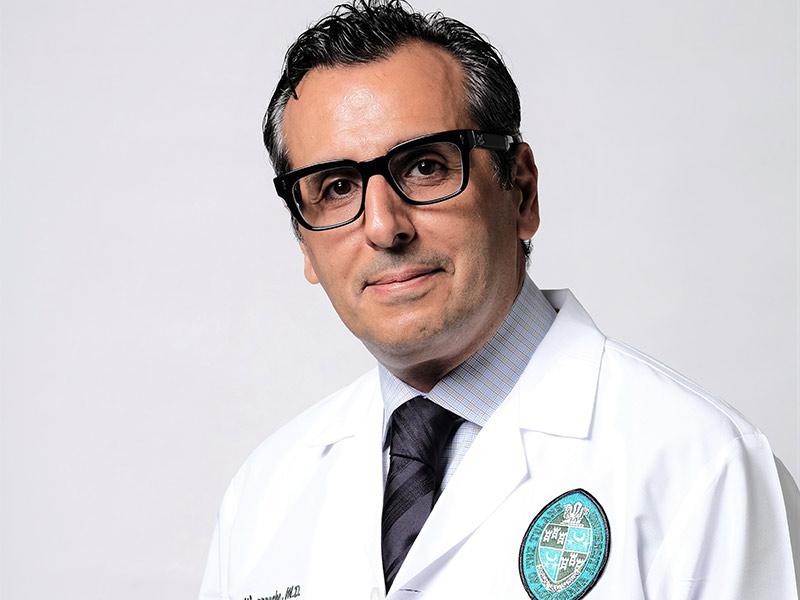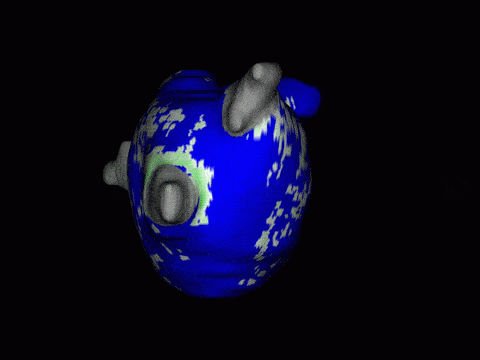Tulane to launch multicenter drug study to improve outcomes after atrial fibrillation procedures
Tulane University will lead a multicenter clinical trial to study whether atrial fibrillation (AFib) patients who undergo cardiac ablation to correct an irregular heart rhythm have better long-term outcomes when taking an anti-arrhythmic drug.
The trial will explore whether the drug Dronedarone helps decrease the scarring of the heart associated with the development of AFib and a common cause of its reoccurrence after treatment. It will also test whether patients taking the drug after their ablation procedure have lower risks for stroke, heart failure or other heart-related complications.
The Effect of Dronedarone on Atrial fibrillation progression and atrial fibrillation Recurrence post-Ablation (EDORA) trial, which is supported by Sanofi, will recruit 330 patients across 15 centers in the United States.
AFib affects more than 2.7 million Americans. The trial is the first to use advanced cardiac imaging technologies to meticulously study the texture, structure and function of the heart of a patient with atrial fibrillation in a prospective randomized fashion, said Dr. Nassir Marrouche, director of the Tulane Research Innovation for Arrhythmia Discoveries(TRIAD) Center and chief of Electrophysiology at Tulane University School of Medicine.
“The advanced imaging technologies will provide much needed insights into the changes happening to the heart after ablation surgery. Patients will have access to the latest MRI technologies that will help them and their providers better understand their disease process and lead to personalized treatment strategies that could significantly improve their outcomes,” Marrouche said. “Scarring of the heart, or the atrial fibrosis, is a hallmark of the heart abnormal process leading to atrial fibrillation. It has been shown to be associated with worse AFib progression, increased risk of stroke, heart failure and mortality in AFib patients. Our trial uniquely targets the progression of this fibrosis seen after ablation and explores ways to slow it down.”
The trial is recruiting AFib patients who are undergoing their first cardiac ablation procedure. Ablation is a procedure that uses energy to create small scars on the heart that can interrupt the unusual electrical signals that cause an uneven heartbeat. The procedure is used when long-term medications are not effective in resetting normal heart rhythm but is also gaining ground as a first-line treatment option.
Patients undergoing ablation will be stratified by age (those above and below age 65) and gender as well as by type of atrial fibrillation (paroxysmal, persistent, etc.) and then randomized to one of two trial groups. They will either receive Dronedarone 400 mg twice daily or a placebo. Patients will be followed post-ablation for AFib recurrence over 13 months.
The study will use wearable technologies to effectively and continuously monitor the patient’s heart rhythm from the comfort of their home. The wearable technology used in this trial will not only improve and facilitate monitoring strategies but will also provide the scientific community with valuable information regarding AFib burden, such as the amount of time a patient is experiencing AFib, and the benefits of using wearable technologies in clinical practice, Marrouche said.
“The wearable technology we are using will enhance the level of care for patients and make it easier to participate by minimizing travel for follow-up visits,” Marrouche said.
For more information about the study, please visit the EDORA trial site or call 504-988-6443.


